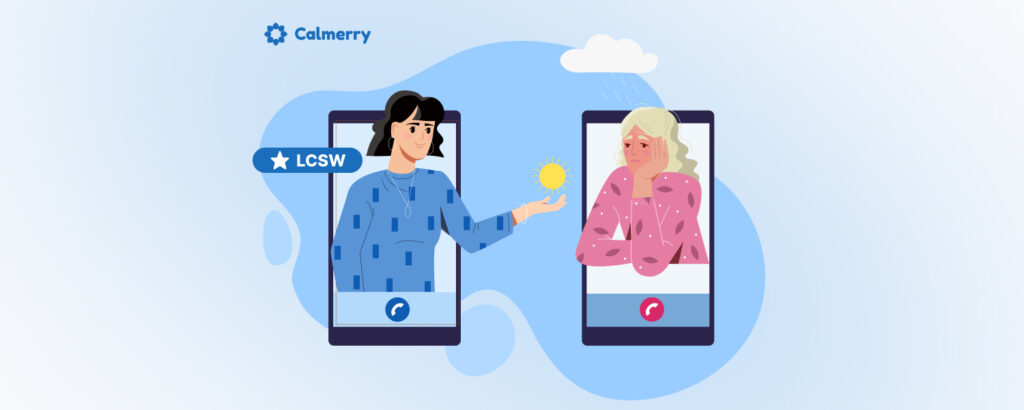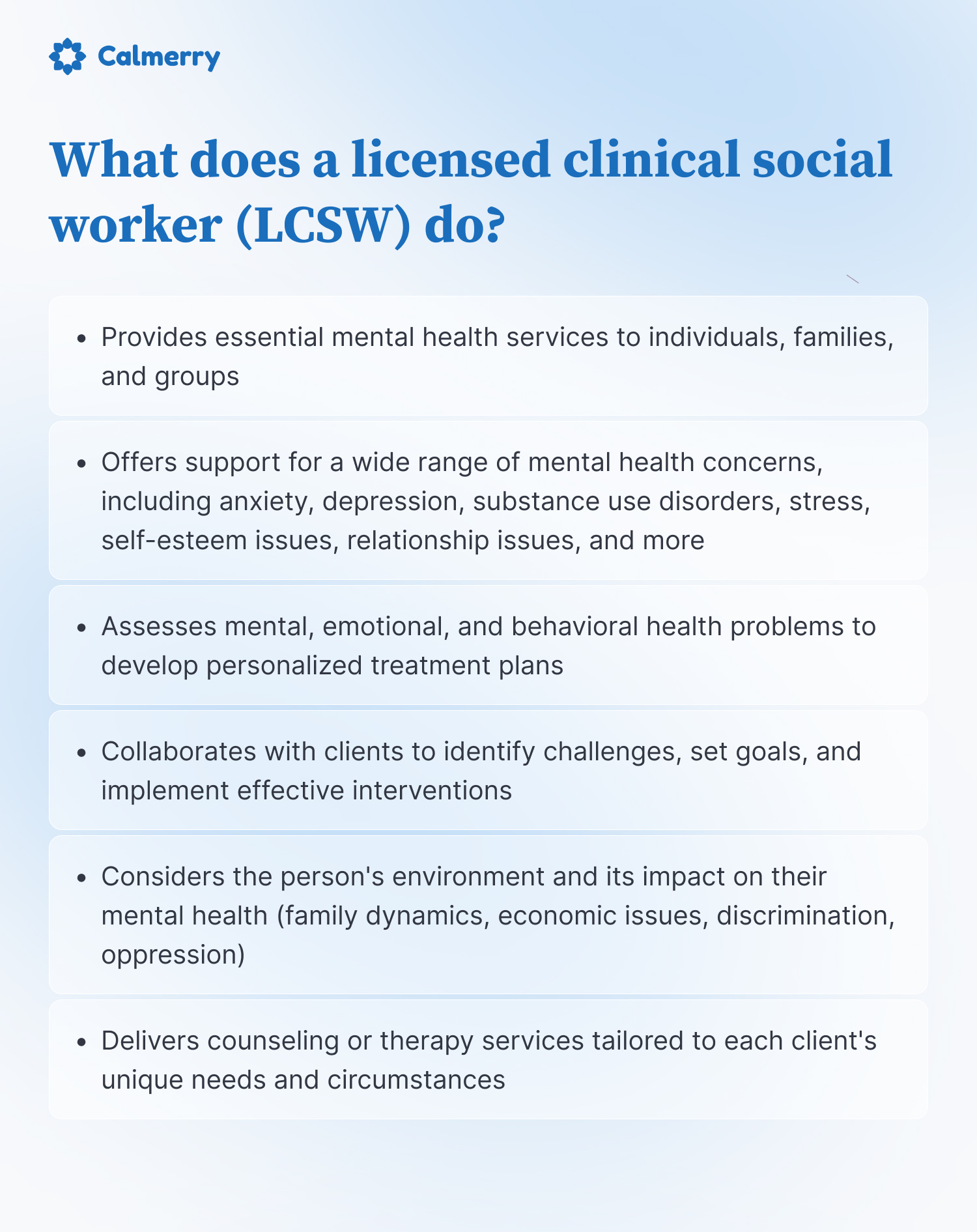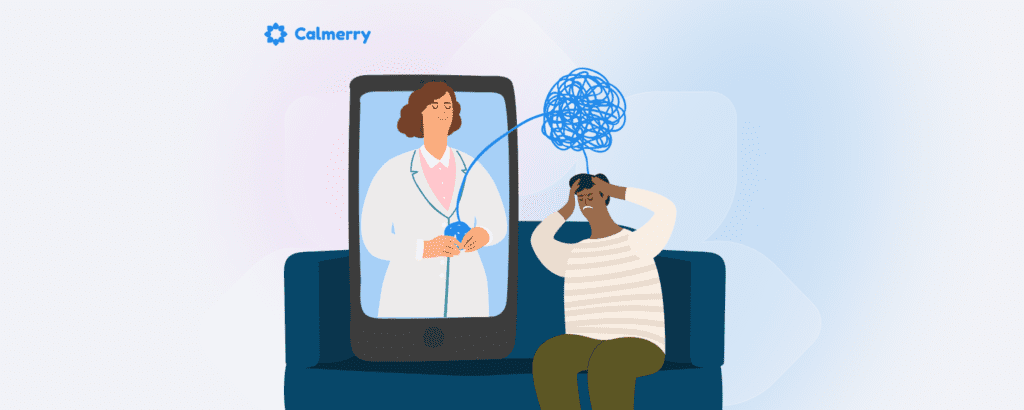Licensed Clinical Social Workers: Who They Are & When to See One

In this article
When you decide to seek counseling or therapy for a mental health problem, it’s important to find a licensed professional. There are several different mental health professionals who are qualified to offer counseling and therapy services.
When you’re searching for a mental health professional, one option to consider is a licensed clinical social worker.
Below, learn about their qualifications, training, and the type of services they offer.
Educational background and training of an LCSW
To become a licensed clinical social worker (LCSW), a person must have at least a master’s degree in social work. Some LCSWs also have a doctoral degree in social work or a related field.
Some LCSWs may obtain a bachelor of social work (BSW) degree, before going on to complete a master of social work (MSW) degree. Others might have obtained an undergraduate degree in a related field like psychology or human services. And others begin their education with a bachelor’s degree in an entirely unrelated field – and later decide to make a career change to social work.
The specific licensure requirements can vary from state to state. But to obtain a clinical social work license, a professional must pass a clinical exam and complete supervised training hours.
Licensure exams test social workers’ knowledge of the diagnosis and treatment of mental health disorders, ethical requirements, and specific treatment modalities.
Before becoming licensed, a clinical social worker must also work under the supervision of a clinical social worker who is already licensed. This typically involves providing clinical services while consulting a more experienced clinical social worker.
Is a licensed clinical social worker a therapist?
Sometimes, people want to know the difference between an LCSW and a therapist.
Technically, a therapist isn’t a specific type of mental health professional. Rather, several different professionals who offer therapy services may refer to themselves as therapists.
A therapist is someone who practices therapy. The term “therapist” is applied to various professions that offer therapy services. These can include clinical social workers, psychologists, psychiatrists, licensed professional counselors, and marriage and family therapists.
In many cases, licensed clinical social workers practice therapy and may even refer to themselves as therapists. Some may retain their identity as social workers, calling themselves clinical social workers who happen to practice therapy.
What does a licensed clinical social worker do?
Social workers in clinical practice are one of the primary providers of mental health services in the United States.
They work with individuals, families, and groups, offering services to address a range of mental health issues.
This can include:
- Working with people to help them cope with anxiety or depression.
- Offering group services to people struggling with substance use disorder.
- Or counseling people dealing with challenges like severe stress or relationship problems.
Like other mental health professionals, clinical social workers offer therapy services. They work with people to identify problems, select goals they’d like to achieve, and select interventions to help them achieve these goals.
Clinical social workers are trained to assess mental, emotional, and behavioral health problems and to collaborate with clients to help them overcome such problems.
What makes clinical social work unique from other mental health professions is the focus on the person within the context of their environment. Clinical social workers don’t view mental health problems as simply existing within an individual person; they also consider the environment in which a person lives.
– Dr. Jenni Jacobsen, PhD, Licensed Social Worker (LSW), mental health writer
For instance, if a person is living with symptoms of depression, a clinical social worker will not just diagnose the person with depression and focus on “healing” the person.
They will also explore issues within the person’s environment, such as family dynamics, economic problems, or even larger issues like discrimination or oppression, that could contribute to symptoms of depression.
Can an LCSW diagnose?
LCSWs can diagnose mental health disorders.
Treating mental health conditions is the primary role of an LCSW, and diagnosing is often a routine part of their practice. LCSWs are trained to use the Diagnostic and Statistical Manual of Mental Disorders to assess and diagnose mental health conditions.
Many LCSWs choose to take graduate-level courses in psychopathology and diagnosis. This prepares them to take the clinical licensure exam, which contains questions related to assessment and diagnosis and specific psychotherapeutic interventions.
Can an LCSW prescribe medication?
A clinical social worker cannot prescribe medication, as they are not medical doctors.
Some clinical social workers may have doctoral degrees in social work or a related field, but only medical doctors are licensed to prescribe medication.
A psychiatrist, who may also provide therapy, is a medical doctor and, as such, can prescribe medication. [1] What is Psychiatry? https://www.psychiatry.org/patients-families/what-is-psychiatry

Who can see an LCSW?
An LCSW can work with individuals, families, and couples seeking treatment or assistance for a mental, emotional, or behavioral health condition. Some LCSWs may offer services in a group format.
- If you’re living with symptoms of a specific mental health condition, such as depression, anxiety, or bipolar disorder, an LCSW is qualified to assess and treat these conditions.
- LCSWs also work with individuals experiencing distress related to common life problems, such as grief, job loss, financial problems, or divorce.
- Some LCSWs specialize in certain areas of practice, such as working with anxiety disorders or personality disorders.
- Others work specifically with children and teens, whereas others may work only with adults or even with all age ranges.
LCSWs can meet a variety of needs, but it’s important to do some background research to find a professional who is a good fit for your situation.
– Dr. Jenni Jacobsen, PhD, Licensed Social Worker (LSW), mental health writer
Who is who: titles explained
As indicated above, there are numerous different professionals within the mental health treatment arena.
These different professionals have much in common with clinical social workers, but there are nuanced differences among different professional titles.
These are discussed below in more detail.
LCSW vs. LMSW
The term “licensed master social worker” or LMSW may sometimes be applied to people who have obtained a master’s degree in social work but do not specifically have a clinical license.
Upon graduating with a master’s degree in social work, there are several paths a person could take.
For example, they may decide to become an administrator at a community service center or public agency. Or, a master’s level social worker might decide to work at a college or university.
On the other hand, some master’s level social workers will enter into the mental health field. Some seek licensure specifically in clinical social work, whereas others take a general exam.
Some LMSWs work in mental health without specific licensure in clinical social work.
An LMSW is more generally licensed to practice in all areas of social work, whereas a clinical social worker is specifically licensed to work in mental health settings.
– Dr. Jenni Jacobsen, PhD, Licensed Social Worker (LSW), mental health writer
LCSW vs. LPC
A licensed professional counselor, or LPC, must obtain a master’s degree in counseling and complete an internship in counseling. [2] National Academies Press (US). (2010). Requirements related to the practice of counseling. Provision of Mental Health Counseling Services Under TRICARE – NCBI Bookshelf. https://www.ncbi.nlm.nih.gov/books/NBK259170/
An LPC performs similar duties to an LCSW, but LPCs are more specifically trained in counseling modalities. The counseling profession is distinct from social work, which emphasizes the application of social justice and anti-oppressive principles to clinical practice.
LCSW vs. LMHC
An LMHC, or licensed mental health counselor, is another term that may be used to refer to someone who practices counseling. In some states, the title LMHC is used instead of LPC.
Like an LPC, an LMHC practices counseling services, has a master’s degree, and has completed an internship in counseling.
Get quality mental health care from an LCSW at Calmerry
At Calmerry, we offer online therapy services with licensed and credentialed mental health professionals.
We have a wide network of licensed clinical social workers who provide services on our platform and can treat a variety of psychological problems and mental health conditions.
Simply fill out a brief survey to help our agents learn more about your needs.
After you complete our survey, we’ll match you with a therapist within an hour. If it’s not a good match, you can switch therapists anytime.
Get connected with an LCSW who is the best fit for your unique situation.
What is Psychiatry? https://www.psychiatry.org/patients-families/what-is-psychiatry
National Academies Press (US). (2010). Requirements related to the practice of counseling. Provision of Mental Health Counseling Services Under TRICARE – NCBI Bookshelf. https://www.ncbi.nlm.nih.gov/books/NBK259170/
online therapy
live video session



